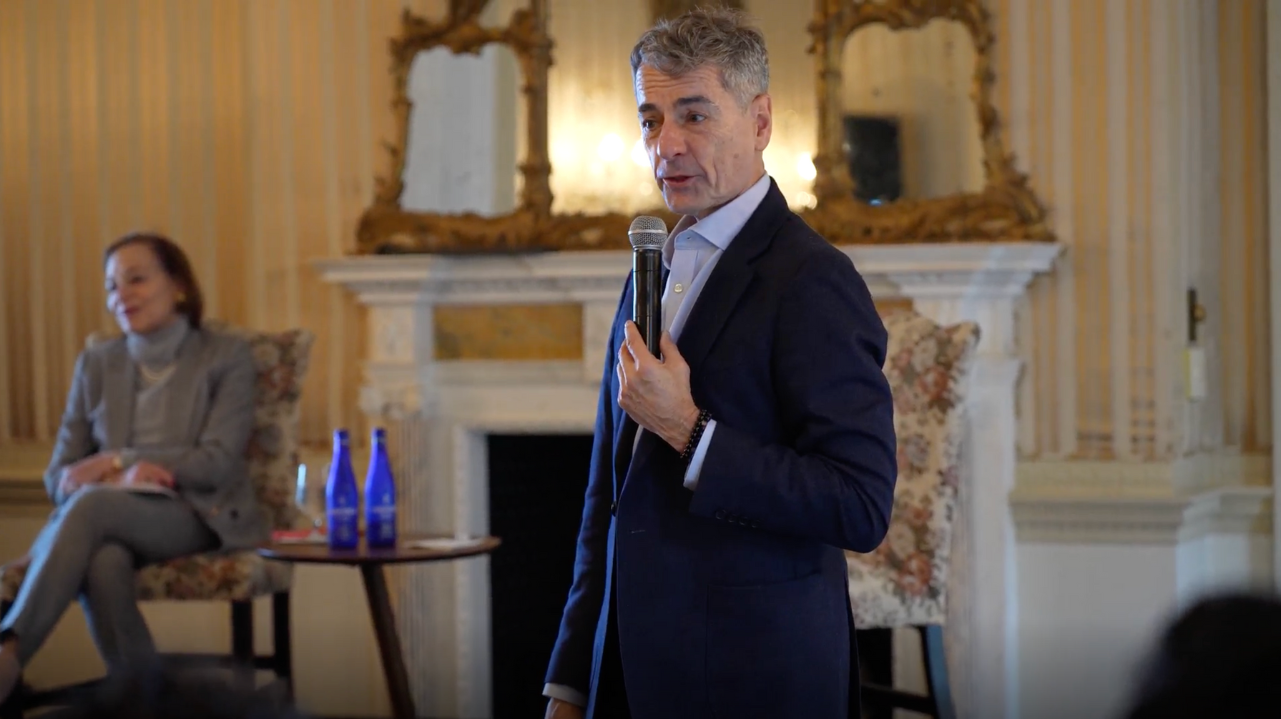Book Launch: Forgotten Continent: The Battle for Latin America's Soul
Book Launch: Forgotten Continent: The Battle for Latin America's Soul
Foreign policy and business experts joined Michael Reid, Americas editor of The Economist and author of Forgotten Continent: The Battle for Latin America´s Soul, to analyze his authoritative account of the battles for democracy and economic stability since the 1982 debt crises.
Speakers:
- Michael Reid, Americas Editor, The Economist (author)
- Joydeep Mukherji, Director and Team Leader of Latin American Sovereign Ratings, Standard & Poor’s
- Ignacio Walker, Former Minister of Foreign Affairs, Chile
- Christopher Sabatini, Senior Director of Policy, AS/COA (moderator)
Summary
On January 29, 2008, AS/COA hosted the launch of Michael Reid’s forthcoming book, Forgotten Continent: The Battle for Latin America’s Soul, published by Young University Press. Along with a presentation of the book, the discussion provided an opportunity for foreign policy and business experts to assess the current political and economic climate in Latin America, as well as the developments that have shaped the region’s history and future prospects.
Latin America Today
In his opening remarks, Reid argued that, contrary to the view that Latin America is a “forgotten continent,” the region’s efforts to build fair and more prosperous societies make Latin America a unique laboratory for the project of capitalist democracy and a region of worldwide importance. Attributing the failure to build stable democracies in Latin America to the unequal distribution of power and income, Reid emphasized that the region needs continued reform—not revolution—to cement the positive changes underway and compete in the global economy. He also noted that, in a sign of the region’s embrace of democratic reforms, Latin America’s citizens vote in greater numbers than ever before and elect candidates of diverse backgrounds. At the same time, militaries exercise less power than in prior decades.
Despite indicators of progress, challenges remain. Among them are the region’s high rate of violent crime, low quality of education, endemic poverty and social exclusion, and challenges to establishing the rule of law. According to Reid, tackling these problems while bolstering democratic governments and adopting better economic and social policies will create stability and growth in the region. Moreover, Reid argues that Washington should play a stronger role in supporting Latin America on issues such as drug flows, trade policy, and illegal immigration.
Economic Outlook
The steady performance of the markets reflects the growing stability of Latin America’s economies, said Standard & Poor’s Joydeep Mukherji. He also noted that larger countries in the region have achieved a degree of insulation by strengthening domestic capital markets. Unlike Mexico and Canada, whose economies are coupled to that of the United States, dire economic straits in the north are unlikely to seriously affect Latin America because of the number and variety of economic “engines” at work in the region.
However, Mukherji also emphasized the myopia of the markets, pointing out that there is no correlation between economic growth and a commitment to implementing reforms. As a result, countries in the region are slow to take up issues like education and social equality until economic stability is maintained. He also argued that Latin American economies have been slower to achieve growth than their counterparts in Asia because the region is only now taking macroeconomic stability for granted.
Contrasting the Mexican Revolution with the national project currently underway in Venezuela, Reid pointed out that the Bolivarian Revolution is a “top-down” effort that has made the country more dependent on oil, and that the peak of President Chávez’s strength passed with the defeat of the December referendum. The author indicated that the distribution of power in Venezuelan ally Bolivia is not as linear as some believe, since the opposition exercises significant clout in the legislature. He added that it remains unlikely that unrest in the Bolivian province of Santa Cruz will cause Bolivia to fracture.
Former Minister Ignacio Walker talked about the Chilean experience, arguing that there are “no shortcuts to development.” He emphasized the importance of consensus building and stability beyond electoral cycles. Addressing the often-cited “Chilean miracle” of the Pinochet dictatorship, he noted that five million people—40 percent of the national population—lived below the poverty line at the time, and that the country has experienced markedly higher rates of growth under democratic governments. Adhering to the principles of “concertación” and “democracias de los acuerdos,” contemporary Chilean democracy has become more competitive. Walker indicated that conducting politics with negotiation and compromise, as well as viewing macroeconomic stability as a “public good,” can fuel growth and social equity in Latin America.
Future Prospects
Efforts to promote growth and social opportunity will transform Latin America, predicted Reid, who pointed out that governments in Mexico and Brazil are surpassing Venezuela in developing social policy that operates on the premise that citizens have a right to education, health, and the basic needs of life. He noted that there is a cross-party consensus on education reform in Brazil, and that the issue was also a major focus of public debate during the 2006 presidential election in Peru.
The “battle for Latin America’s soul” between democratic reformers and autocratic populists involves competing interpretations of the region’s history and future orientation, said Reid. Countries—including Brazil, Chile, and Mexico—that pursue democratic reform are more likely to succeed in a globalized world and fulfill the promise of good government to their citizens.








